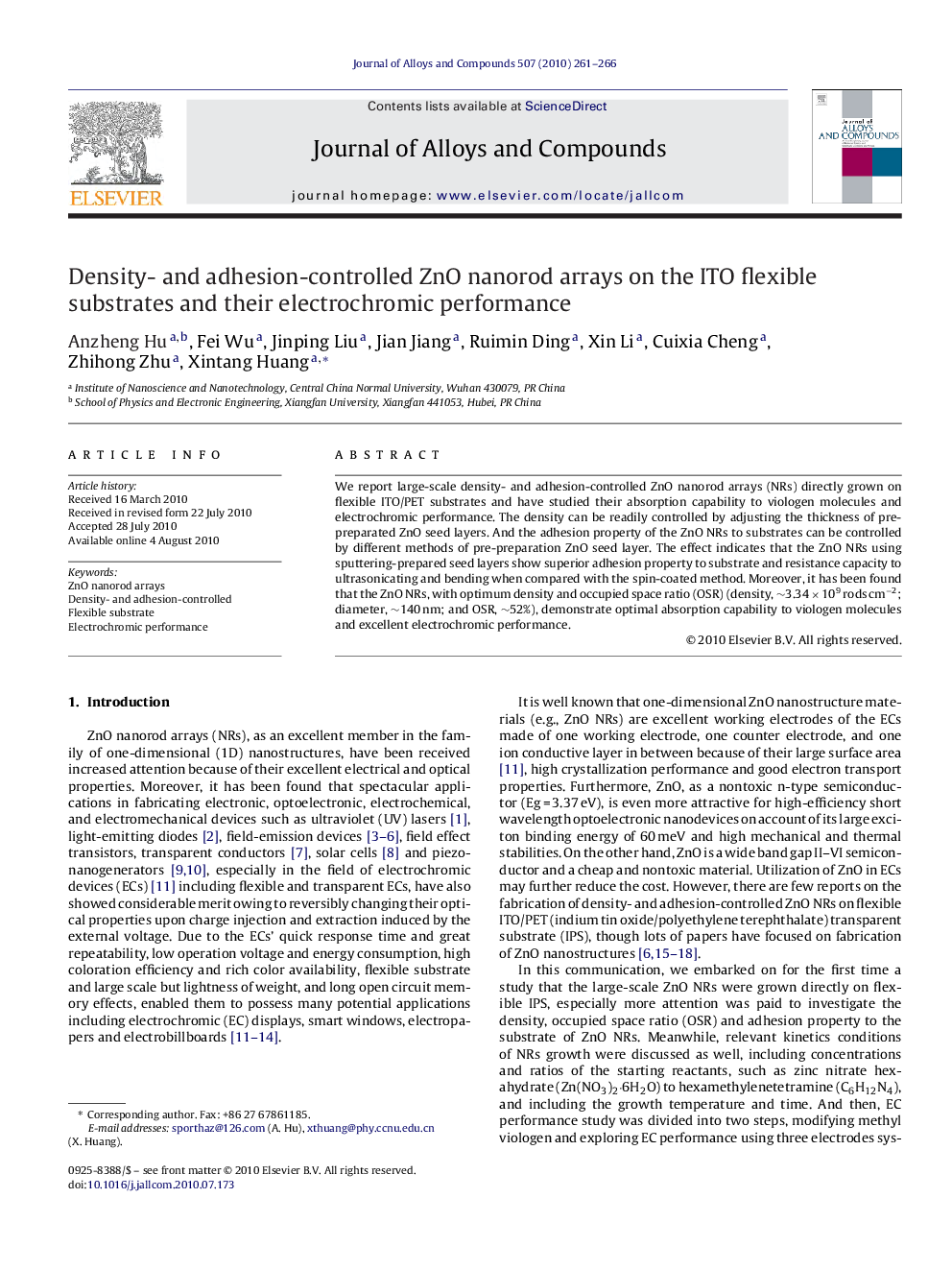| کد مقاله | کد نشریه | سال انتشار | مقاله انگلیسی | نسخه تمام متن |
|---|---|---|---|---|
| 1618247 | 1005702 | 2010 | 6 صفحه PDF | دانلود رایگان |

We report large-scale density- and adhesion-controlled ZnO nanorod arrays (NRs) directly grown on flexible ITO/PET substrates and have studied their absorption capability to viologen molecules and electrochromic performance. The density can be readily controlled by adjusting the thickness of pre-preparated ZnO seed layers. And the adhesion property of the ZnO NRs to substrates can be controlled by different methods of pre-preparation ZnO seed layer. The effect indicates that the ZnO NRs using sputtering-prepared seed layers show superior adhesion property to substrate and resistance capacity to ultrasonicating and bending when compared with the spin-coated method. Moreover, it has been found that the ZnO NRs, with optimum density and occupied space ratio (OSR) (density, ∼3.34 × 109 rods cm−2; diameter, ∼140 nm; and OSR, ∼52%), demonstrate optimal absorption capability to viologen molecules and excellent electrochromic performance.
Research highlights▶ We embarked on for the first time a study that the large-scale ZnO nanorod arrays (NRs) were grown directly on flexible ITO/PET substrates. ▶ The density can be readily controlled by adjusting the thickness of pre-preparated ZnO seed layers. And the occupied space ratio (OSR) can be controlled by the density and relevant kinetics conditions of ZnO NRs growth. ▶ The experimental effect indicates that the ZnO NRs using sputtering-prepared seed layers show superior adhesion property to substrate and stability when compared with the spin-coated method. ▶ The ZnO NRs with optimum density and OSR (diameter, ∼140 nm; density, ∼3.34 × 109 rods cm−2; and OSR, ∼52%) can be obtained by using the solution containing 0.05 M Zn(NO3)2·6H2O and 0.06 M C6H12N4 at 75 °C for 24 h, before about 4–5 nm thickness of ZnO seed layers were sputtered. ▶ It has been found that the ZnO NRs with optimum density and OSR (density, ∼3.34 × 109 rods cm−2; diameter, ∼ 140 nm; and OSR, ∼52%) demonstrate optimal absorption capability to viologen molecules and excellent electrochromic performance. ▶ Our results would provide a promising route to study flexible electrochromic and further find the optimized electrode structure.
Journal: Journal of Alloys and Compounds - Volume 507, Issue 1, 24 September 2010, Pages 261–266